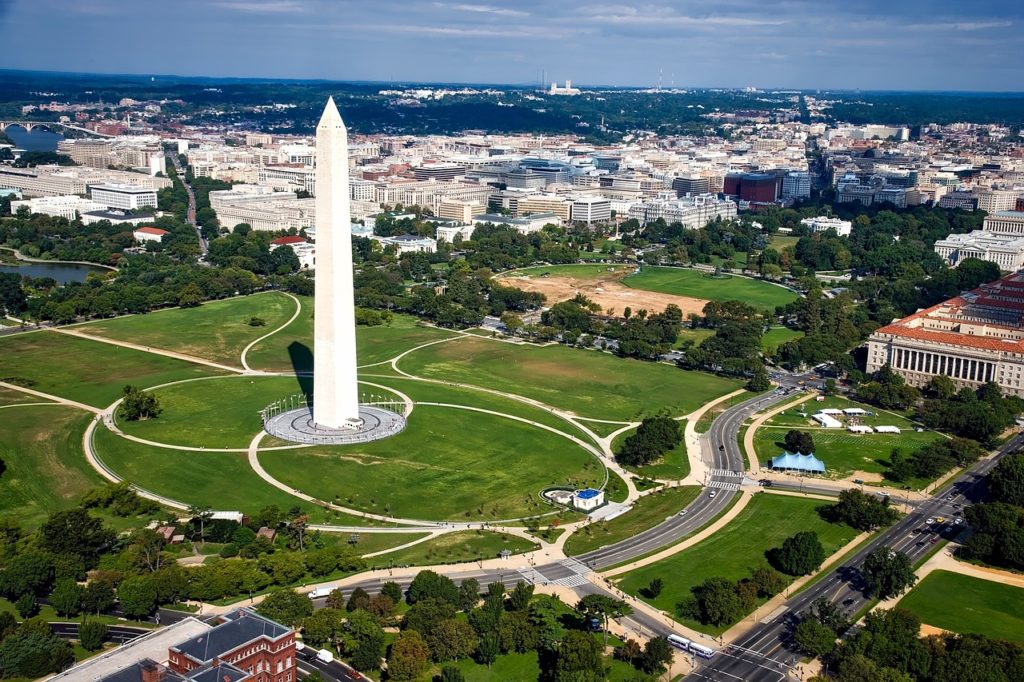Coming up with the down payment in DC is the main challenge first-time homeowners confront, especially in markets like the Washington, D.C., area. However, youthful consumers can believe their obstacles are much greater than they actually are.
The idea that you need to save up for a 20% down payment is still a common one. Having more than $100,000 saved up only for the down payment is out of reach for the majority of young purchasers because the median price of a home in the D.C. metro area is now $520,000.
While the “gold standard” may be a 20% down payment, the National Association of Realtors notes that this is far from the norm.
In most cases, a 6% to 7% down payment is expected. The interest rate on an FHA loan is only 3.5 percent. To take advantage of these low down payment choices.
It may not make financial sense to put down a large sum of money on a home, especially in more expensive areas, but there are situations in which doing so is reasonable.
The down payment isn’t the only first expense first-time buyers should consider. For the most part, if it’s an older building you’re considering purchasing. The item could require maintenance. Additionally, you will become overly enthusiastic, want to decorate excessively, and end up spending more money than you had planned. And therefore, you should still put away a sizeable sum of money.
Save up to make down payment in DC
The down payment is the initial payment made toward the purchase of a home. The balance will be paid by your mortgage lender.
The standard down payment required by mortgage lenders in the District of Columbia is 20%. A property in Washington, DC, with the median value of $552,793, would cost you $110,559.
There are, however, ways to reduce your initial investment.
VA and FHA loans, both of which are backed by the government, need no down payment while requiring only 3.5%. A 3-5% down payment is acceptable even for traditional loans (though the minimum varies by lender).
However, putting down less than 20% can be risky.
To begin with, your monthly payment and total interest paid will both increase as a result of your loan’s increased principal.
As a second point, mortgage insurance can be required.
Private mortgage insurance (PMI) is required by most conventional lenders until the loan-to-value ratio drops below 80%. Mortgage insurance premiums (MIPs) are obligatory for the duration of your loan with an FHA loan.
In most cases, mortgage insurance amounts to about one percent of the loan balance each year. Your down payment and credit score will determine your interest rate. Your monthly mortgage payment will typically include the premium for mortgage insurance.
Hard money lenders typically require a higher down payment than conventional lenders but these are the best options if you are looking for a investment property to rent out or flip for profit in Washington DC.
With a VA loan, you won’t have to pay for PMI. In its place, you’ll need to pay a VA loan funding charge of 1.4% to 3.6% of the purchase price at the time of closing.
Programs in the District of Columbia that help with down payments
Some D.C. residents may qualify for one of several down payment assistance (DPA) programs. If you meet the requirements, you may be eligible to receive a grant or second mortgage from one of these programs to use toward your down payment or closing fees.
Why a greater down payment is preferable
Having a larger initial investment is advantageous. Higher down payments are often rewarded by reduced interest rates from lenders. A lower interest rate can save you hundreds of dollars over the course of your loan if you lock it in early.
Homebuyers who put down at least 20% on a conventional (i.e., not government-backed) mortgage are exempt from PMI premiums (PMI). The average premium for private mortgage insurance (PMI) is 2% of the loan amount, or $200 to $2,000 for every $100,000 you borrow. When you reach 20% equity in your house, you often qualify to have your PMI dropped.
In spite of the advantages, a big down payment is not always the best option for buyers. It’s important to ensure that you’ll have enough money left over after the purchase to cover the costs of homeownership, including as maintenance and repairs.
When deciding how much of a down payment to make, it’s important to think about your other financial commitments, as well as how much you can afford to put toward your new house.
Alternatives to Home Purchase Financing and How to Get Them
Purchasing a home in the Washington DC is a huge accomplishment, but it may take some time. Both how long it takes and how much it costs to find a home can be impacted by external factors such as your budget, the housing market, the state of the economy in your area and financing method. For a financing the home, you can choose between a normal mortgage and an FHA mortgage.
If you have some money set up for the purchase but need cash urgently for the down payment of the home, a hard money loan might fit into your situation.
If you want to build a house but don’t have the cash on hand, you’ll have to hunt for raw land loans, conventional loans, and mortgages from reputable lenders. Mortgages that transition to permanent financing include the advantages of both types of financing.
Get a hard money loan from 14th Street Capital, a reputable lender, so you may pay the down payment in your home. Common features of these quick, paperless hard money loans are adaptable repayment schedules and a low amount of required paperwork.

